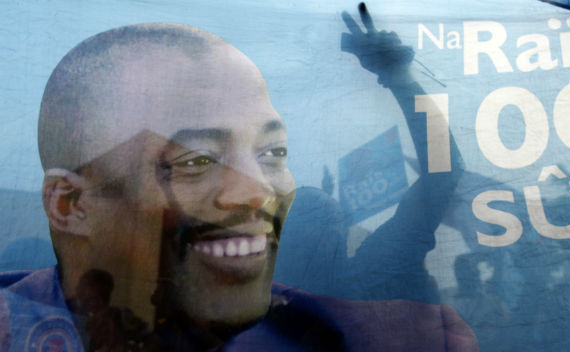It’s Getting Hot in Congo
More on:

The electoral commission has declared Joseph Kabila the winner of Congo’s presidential elections with 49 percent of the vote. The chief opposition candidate, Etienne Tshisekedi, has rejected the election results. Violence has already broken out, but the reported instances thus far are small in comparison with post-electoral violence in Ivory Coast or Nigeria. How Kabila and Tshisekedi maneuver over the next few days will play a significant role in determining whether Congo descends into widespread bloodshed.
The Carter Center, a non-profit founded by President Jimmy Carter that has broad experience in election monitoring, has determined that the Congo polling “lacked credibility” and rated as “poor” some 40 percent of the 169 compilation centers. Other election monitors have also been critical. The exception is the Southern African Development Community (SADC) observer mission that characterized as “sterling” the performance of the electoral commission – almost certainly damaging its own credibility. The South African opposition, the Democratic Alliance, issued as press release stating that given the “massive electoral fraud,” there is “no way that the South African government can recognize Joseph Kabila as the democratically-elected president.” The U.S. Department of State issued a press release congratulating “the Congolese people for the large voter turnout and enthusiasm” and urged Congolese political leaders “to act responsibly, to renounce violence, and to resolve any disagreements through peaceful dialogue” – a tepid and unenthusiastic response.
What’s next? Tshisekedi has already declared publicly that he, in fact, won 54 percent of the vote: “As a result, I consider myself from this day on as the elected president.” A Kabila government spokesman characterizes the Tshisekedi statement as an “infraction of the law” and an “attack on the constitution,” according to the press. The press is also reporting that Kinshasa is sharply divided between neighborhoods supporting Kabila and those supporting Tshisekedi.
It looks reminiscent of the stand-off between Laurent Gbagbo and Alassane Ouattara in Ivory Coast that took months – and outside intervention by the French and the UN – to resolve in Ouattara’s favor. The difference thus far is that the international community endorsed the Ivorian elections that Ouattara won, while it has not done so with respect to Congo’s.
More on:
 Online Store
Online Store